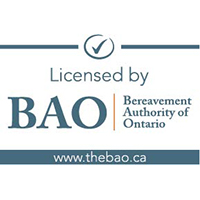
In our last article, we explored five conversation topics that are important to have with our aging parents. As a continuation of our series of discussions around caregivers, I wanted to explore the question around Conversation #2: Where to Live? More specifically, let’s dig a little deeper around the question, “How do you know when it’s time to consider assisted living?”
We may be a concerned spouse, child or close friend/power of attorney of the older adult. Whether we’ve been their caregiver directly or not, making the decision to put our loved one in assisted living is one of the hardest decisions we’ll ever make. All kinds of emotions including guilt, sadness, stress and overwhelm can accompany the experience. And a couple of the hardest ones can be the senses of confusion and uncertainty that come BEFORE making the decision.
So here are a few signs to look for that we hope can bring clarity and a sense of peace. If even if a couple of these are present, it may be time to start thinking about making the move.

1. Decreased ability to accomplish everyday tasks
They may have started paying someone to cut the grass and shovel the snow. But are they now having trouble showering or preparing simple meals? Are the dishes done and bathrooms cleaned on a regular basis? Maybe it’s simple tasks like brushing their teeth, zipping up zippers or doing their own laundry. Now they are taking far longer than they ever used to. Living in an assisted living facility could serve to reduce your loved one’s stress levels in a variety of ways.
Yes, they may enjoy owning their own home, but the upkeep may be more than they can handle. Talk to them about whether they might prefer to live in a place where they have less upkeep to worry about.
2. Forgetting their medications
This is a critical one for of course as not taking the medications on time or in the right way can become a very serious problem. Have you found expired medications in their medicine cabinet? This is one of the first signs that can make the decision to move into assisted living very easy.
Not only does it obviously affect their physical health, but the forgetfulness can also serve as a red flag for potential mental health issues. When you begin the process of looking for the right assisted living home for your parents, spouse, sibling or close friend, it can bring you some peace of mind that they will receive the care they need.
3. Increased frequency of falls (or near falls)
Mobility issues are common in older adults and there are many areas of the home where they can trip. If your loved one is experiencing one too many “close calls”, it may be time to look into the benefits of assisted living.
4. Isolation and sadness
First they give up their driver’s license. And over time, they are venturing out less and less. They tell you it’s just easier to stay home. But the weeks, months and even years go by, and this can turn into increased feelings of loneliness and sadness. They may even begin exhibiting symptoms of depression.
Moving them into assisted living can afford them the opportunity to eat with other older adults, participate in card games and various activities and access the sense of connection and community that they are desperately missing.
5. Change in Personality
Is your loved one experiencing more than average changes in personality or behaviour? Have they lost interest in activities they used to love? It’s important to monitor their wellbeing more closely. These changes may be early indicators that professional help should be sought, and transitioning your parents to assisted living might be what’s best for them.
6. Getting Sick More Often
It’s no surprise that as we age, we are more likely to catch illnesses. Older adults are more prone to catching influenza or more serious infections. This decrease in health may necessitate more than you or they can provide for themselves.
7. Caregiver Burnout
Speaking of which… Are you doing all or the majority of the work of caring for your family member? Is the stress becoming overwhelming? Most people who care for their aging loved one do so with incredible love and with the highest intentions. However the reality is that many are not prepared for the overwhelming mental, emotional and physical toll it takes.
Your friends, maybe even other family members, are telling you that you’ve done the best you can. That you should consider seeking the support that both you and your friend or family member need. Your head may sense that they are right, but your heart has a hard time and is battling feelings of shame or guilt.
The truth is you are not giving up on them. You are not abandoning them. And you are certainly not “too weak”. In moving towards assisted living, you are exuding the strength it requires to take the next step in caring for them in the most loving way.
The question of when to move your loved one into assisted living isn’t a simple one. But the signs above may help lead you to the answers you need and make the process just a little bit easier.





